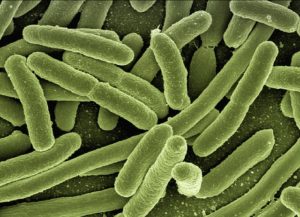 Your gut micro-biome, otherwise known as the host of bacteria that live inside your gut, plays a fascinating role in your well-being. We have more bacteria living in our bodies that we have human cells. Luckily, most of these bacteria are helpful critters that protect us from diseases and helps us to digest food in exchange for a place to live. This article is full of interesting facts about your body’s micro-biome and will dispel any uncomfortable feelings regarding the vast number of foreign organisms roaming your body.
Your gut micro-biome, otherwise known as the host of bacteria that live inside your gut, plays a fascinating role in your well-being. We have more bacteria living in our bodies that we have human cells. Luckily, most of these bacteria are helpful critters that protect us from diseases and helps us to digest food in exchange for a place to live. This article is full of interesting facts about your body’s micro-biome and will dispel any uncomfortable feelings regarding the vast number of foreign organisms roaming your body.
What your body’s microbiome looks like
Firstly, there are an estimated 100 trillion bacteria living inside your body. This is more than the number of stars in the Milky Way. A massive 99% of your microbiome lives in your digestive tract. There are over 1400 different species of bacteria roaming around your body. Collectively they weigh about 2 pounds which is roughly equivalent to the weight of your brain. There are 10 times as many microbes in your body as normal human body cells.
Your microbiome and your immune system
About 66% of your immune system is in your digestive tract. The microorganisms in your gut communicate with your intestines to help regulate your immune system. Healthy bacteria inside your gut forms a protective layer which prevents malignant bacteria from growing rapidly. If you don’t have enough healthy gut bacteria, your immune system can be thrown off, and you can be at risk of contracting hay fever or other diseases. A deficiency of healthy gut bacteria allows bad bacteria to grow at a rapid pace and research studies have shown that this can contribute to an upset stomach, mental health problems such as anxiety and depression, and the risk of obesity.
Antibiotics
It can take your body up to a year to restore its healthy gut microbiome after one course of antibiotics. A course of antibiotics can alter the state of your microbiome and make it more difficult to digest food.
Probiotics
There is some debate regarding the usefulness of using probiotics to boost the healthy bacteria in your gut. Some doctors believe that few of these probiotics can survive the acidic conditions in your stomach and the enzymes in your small intestines. Most of your gut microbiome sits in your large intestines, and if the probiotics can’t reach your colon, then they aren’t of much use. Secondly, probiotics contain but a fraction of the diverse number of different bacterial species that live in your gut.
Conversely, other doctors believe that probiotic supplements can improve your nutrient uptake as well as address some health issues such as irritable bowel syndrome (IBS), diarrhea, Clostridium difficile disease, and mental health issues. Furthermore, it is believed that probiotics can support heart health by producing lactic acid. Lactic acid reduces cholesterol levels, reducing the risk of heart disease.
Gut microbiome influences decision-making
The microorganisms in your gut talks to your brain via your neural network. It can have a say in whether you have an appetite or what foods you are craving. In fact, doctors believe that your gut is a “second brain.” It is the only system in your body that can operate without the intervention of your brain.
Fecal transplants
This may sound gross, but fecal transplants have been used to restore patients’ microbiome in severe cases. This method is usually reserved for patients with Clostridium difficile infections that don’t respond to antibiotics. In modern times, this treatment has been around since the 1950’s. Yet, the method actually dates back the 4th century in China where digestive problems were treated with “yellow soup” otherwise known as a fecal suspension.
Two simple tricks to improve your gut health
What can you do to improve your gut health? Start by avoiding sugary and processed foods. These foods are quickly absorbed in your small intestines, leaving few nutrients for your gut bacteria in your colon. This can put your immune system out of whack. Another trick is to eat fermented foods like yogurt which are natural probiotics. These foods naturally contribute to your gut health.
See, your gut micro-biome is jam-packed with organisms that just wants you to be healthy so that they also have a healthy place to thrive. Without a healthy gut micro-biome, we would be more susceptible to diseases, and we wouldn’t be able to digest our food as well as we do now.

Share This